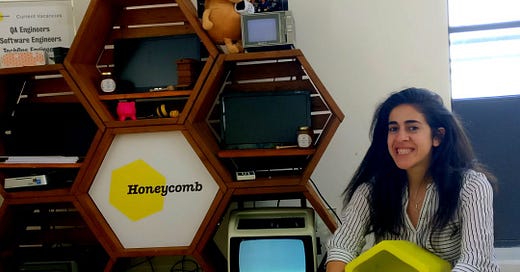Interviewing is hard, especially when you lack confidence in your technical capability. I’ve been there - and I failed hard.
The struggle
6 years ago, my cofounders and I decided to close down our 18-month-old startup. I was burned out and disappointed. Admitting that our startup is not gonna work out is humbling. I’ve spent the first 4 years of my career building castles on sand (startup ideas that failed).
I didn’t have a tech team to learn from. I craved to be part of an established tech team, to cut down the bad habits I picked up over the years and build solid engineering practices.
But going through the interview process felt like a mountain.
I applied to a dozen openings and my inbox filled up with take-home tests. In moments of fear, our brains go into fight, flight or freeze. My brain chose to… flight. The more I chose flight, the more insecure I became. The interview process wasn’t working for me.
The tipping point
That’s when I heard about the Pipeline Conference… and I volunteered to help.
Little did I know that this would get me to my next job.
“I don’t know what I’m doing with my life, can you help?", I naively asked the keynote speaker, to which he said yes (for some reason 🙂). The next day, he connected me with a CTO, and a day later I was at Chris Young’s office.
My chat with Chris turned out to be the start of an interview process where I felt safe. This time I didn't choose flight, and the interview process was one I'd never experienced before (a story for another day).
The Lessons
I can't repeat this incredible chain of events. But I can share what I learned:
1. Share what you’re good at even if it feels irrelevant to the engineering role.
Having iterated on my startup idea regularly based on user feedback was a valuable skill for product engineers. Disagreeing with my cofounders daily was an excellent skill for navigating conflicts in bigger teams.
2. Be honest about your gaps in experience.
Picking up bad habits from coding alone is an expected thing. You want to be hired knowing that you can talk about your gaps and set goals to improve in those areas. By being honest will only take pressure off you during the process, and the interviewers will be able to clearly state whether they can onboard someone with your level of experience. There’s nothing worse than joining a company where they expect you to have waaaaaay more experience than what you have.
3. Reflect on what you need during the interview process.
Six years ago, my need was to feel safe within the organisation I would join. That I can grow by making mistakes and being honest about them. My needs have changed throughout the years, and I’ve approached interviews with different sets of expectations and priorities. If you have interviews coming up, listen to your needs.
4. If the interview process doesn’t work for what you need, suggest a change or end it sooner than later.
Ask to speak to that engineering manager or engineer you wanted, suggest a live pairing over a take-home test, or request to have a 2nd interviewer from a minoritised group in the interview. Ask to have all interviews in one day, or scattered across a week. Ask for details per interview stage, and examples of what each interview looks like. Nerves can get the best of us; whatever that is that would make you feel more comfortable and ready - Ask for what you need.
5. Find ways to stand out.
Apply through less conventional ways. I volunteered at a conference, to ask the keynote speaker for advice, which led to meeting my next employer. We’ve heard of other developers who built an MVP of a new feature for the company they wanted to apply for, and others who designed beautiful CVs that couldn’t be ignored. I have friends who only find jobs via their network, so they can skip the screening phase. What’s your way to stand out?
Whether you’re affected by layoffs or you’re keen to change companies and continue growing in a different environment, I hope this guide will give you a few ideas on how to approach your next interviews.
My last piece of advice? Be honest. Being honest will open the right doors for you. And if you feel that by being honest, you’re pushing companies away, you are either presenting yourself in a way that hinders your competency (I’ve done this a lot in the past) or you’re genuinely a terrible employee 🤣 … which I doubt! The fact that you’re reading this tells me that you care about your work and your professional growth. And in that case, DM me and I can help you position yourself better in interviews. 🙌




